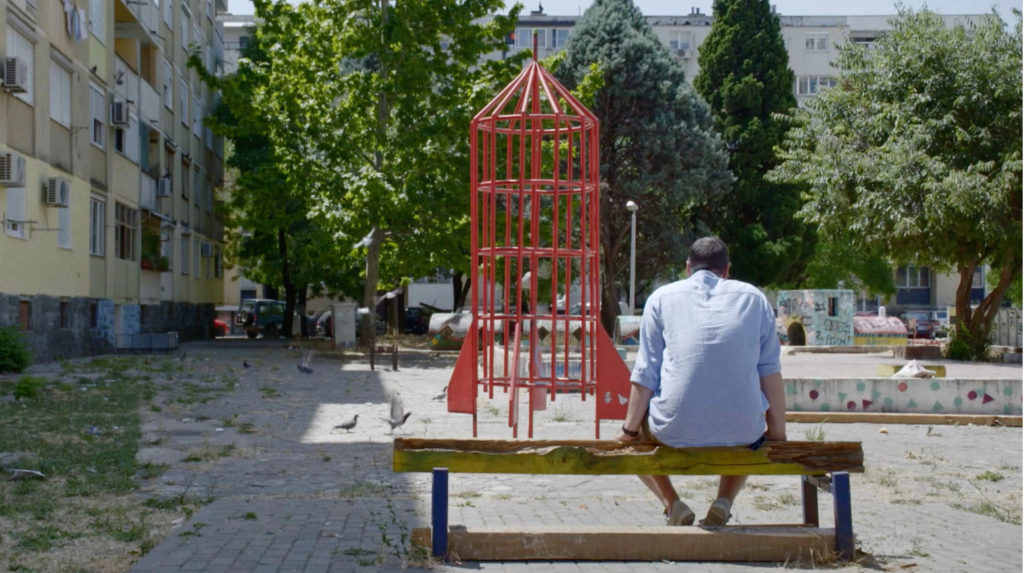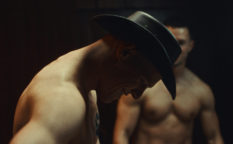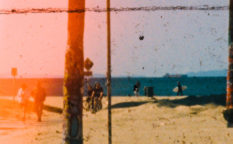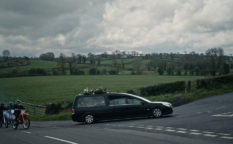Sarajevo review: Deserters (2022)
Sarajevo Film Festival
Documentary Film Competition

In his previous, mid-length documentary Wait for Me, Damir Markovina explained the paradoxes of the post-Yugoslav reality for “proper” Yugoslav families, using his own as an example: four people had their shared lives torn between four cities and three countries. In his Sarajevo Film Festival competition title Deserters (also mid-lenght), he deals with his hometown of Mostar, his generation of people born in the early-to-mid 70s and their destinies during the war that was especially brutal in that city.
The film premiered in Jihlava last year where it won two prizes (for Best CEE Film and for Best Sound Design), touring – among others, the selected festivals like Trieste and ZagrebDox afterwards, before reaching Sarajevo.
Markovina opens the film with one of the most iconic and terrifying archival recordings of the 90s war in Yugoslavia: the destruction of the Old Bridge in Mostar that served not only as the principal site of the city, but also as its symbol. After the blackout long enough to be felt, we get to see the river Neretva flowing in a close-up shot, without seeing the state of its banks, and it makes us wonder what was left from the city, not just physically, but also mentally, now, some 30 years after the war.
The principal narrative material of the film dedicated to “all those who flee” are letters to Dado, the filmmaker himself, written by his friends and classmates during the war. We learn that Dado moved to Zagreb and started studies at the medical school, which actually is a “normal” progression of a Gymnasium Aleksa Šantić graduate. Many people were not that lucky. Some stayed in the war-torn city witnessing former friends and neighbours turning against each others, seeing their parents being harassed on the national basis and hearing about their acquaintances getting killed. The others left and started their lives as refugees in foreign world or in the neighbouring countries where they feared deportation to Bosnia and Herzegovina.

The letters that come from Mostar, Podgora, London, Istanbul, Sweden, Italy… are sometimes photographed in their entirety as evidence of sorts, but are more often illustrated with the postcards from those places, sometimes tampered with by the means of animation done by Marko Tadić and Luka Čižmak. The tampering is more extreme and the animation tends to get darker when it comes to the photographs of Mostar sites.
The city is also present in video material in two ways. The pre-war home archival one presents the life of the careless youth full of joy, while the newly filmed one concentrates on usually empty and often devastated places, with Markovina (also an actor by trade) sometimes present in the frame. Although the signs of the “normal” life can be present (in the form of the cars driving down the streets or the locals jumping of the reconstructed bridge for fun or for pocket money from tourists), for Markovina and his generation it is no longer the same city they grew up in.
Dealing with such emotion, and multitude of techniques and approaches requires precise work. The cinematography of Krešimir Štulina highlights the contrasts between the beauty and the devastation, the animation makes some of the static imagery a lot livelier, albeit darker, the editing by Dora Slakoper keeps the rhythm moving, but also leaves the viewers enough time to think about what they heard, while the finely tuned sound design by Miroslav Piškulić adds another layer to the film, since the music can be heard only close to the closing credits.
Deserters is about sincere emotions and no pretense, but it also serves as the showcase of Markovina’s filmmaking talent and budding style that approaches the sombre topic with certain playfulness, combining the documentary devices not only with animation interventions, but also with the essayist approach with some of fiction film moves. The heroic act here is that all the stylish fiddling does not damage the film and, more importantly, its sense of truthfulness. A cathartic, therapeutic, even medicinal, much needed film.
Original
title: Dezerteri
Year: 2022
Runtime: 45’
Country: Croatia
Language: Bosnian
Directed by: Damir Markovina
Voice cast: Gabrijela Kasapović, Marko Tomaš, Boris Miletić, Rea
Hadžiosmanović
Cinematography by: Krešimir Štulina
Editing by: Dora Slakoper
Animation by: Marko Tadić, Luka Čižmak
Music by: Manja Ristić
Sound design by: Miroslav Piškulić
Colourist: Darko Kušlan
Executive producer: Damir Markovina
Production company: Academy of the Dramatic Arts (ADU) Zagreb
Supported by: Croatian Audiovisual Centre
















